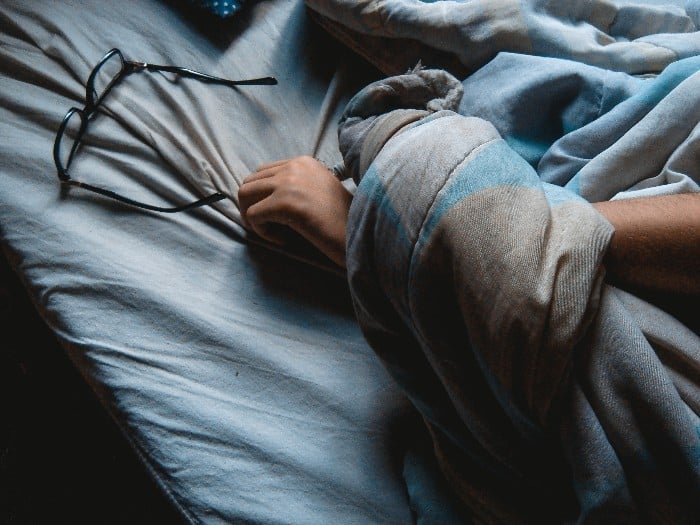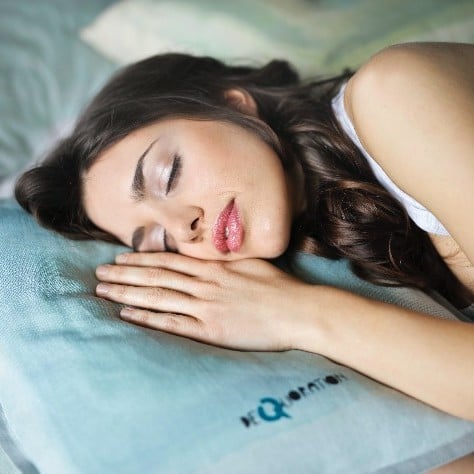What Effect Does Seven to Eight Hours of Sleep Have on Your Body?
Why do humans require sleep?
The importance of sleep is often underestimated. Sleep deprivation has been linked to a number of health issues such as obesity and diabetes. More importantly, though, it decreases your performance, makes you less productive, and can lead to serious health concerns like obesity, disease and early death.
Sleeping is a function that plays an important role in one’s life. When you sleep, your brain releases hormones and other compounds that help your body function and promote health.
reduce the likelihood of developing harmful health conditions
control your hunger levels
keep your immune system strong
keep in mind
You can’t make up for lost sleep, though. In fact, sleeping for more than six to eight hours every night can be harmful to your health. Continue reading to find out why seven to eight hours of sleep is recommended.

Longevity takes seven to eight hours
The average adult needs seven to eight hours of sleep every night. There is a lot of research about the benefits of adequate sleep for the human body, and studies show that sleep is a vital component in our overall health.
Researchers in the United Kingdom and Italy looked at data from 16 different research that spanned 25 years and involved over 1.3 million persons and 100,000 deaths. Their findings were published in a 2010 publication.
Those who slept 6 hours or less per night were 12 percent more likely to die prematurely than those who slept 7-10 hours, but they were also 22 percent more likely to die of cancer. Those who slept 11 hours or more were 30 percent more likely to die of cancer and a whopping 36 percent more likely to die of heart disease.
Researchers also discovered that persons who cut their nightly sleep period from seven to eight hours to less than seven hours had a higher risk of dying from any reason. Additionally, those who slept for a long period of time per night had a higher chance of death from any cause, according to the study.
Sleep helps you manage your hunger
Poor sleep habits can cause a person to need more energy. At night, the body burns less energy and movement is decreased. But when a person is sleep-deprived, their brain releases chemicals that can increase a person’s appetite and cause them to eat more, decrease physical activity, and gain weight.
Children are also affected by sleep deprivation. According to a 2014 study, children who slept less had a higher chance of obesity and a high BMI. As children get older, they may be exposed to these dangers.

Sleep is beneficial to the immune system.
When you sleep, your immune system is in a state of “rest”. While you are sleeping, your body is releasing a large number of (cytokines) which have a protective effect on your immune system. They help your body fight inflammation, including inflammation due to infection.
Without enough sleep, you’re likely to get sick. Sleep deprivation leads to a weakened immune system, which makes it easier to get sick. Without enough sleep, your immune system won’t be strong enough to protect you from infections. Your health is at risk, no matter what your age is.
According to a study from 2013, Sleep deprivation, according to Trusted Source, increases the amount of inflammatory substances and activity in a person’s body. These are the same substances that are linked to asthma and allergies.
The researchers looked at people who were subjected to a four-hour sleep deprivation every night for five days in a row. Two nights in a row of 8 hours of sleep time were part of the experimental protocol used in the experimental group subjects before and after these 5 days of minimal sleep deprivation.
A study recently published by a research team at the University of Cambridge in the journal Sleep has found that limited sleep deprived subjects are affected in the same way as those who are chronically sleep deprived. Those people who had a period of limited sleep were shown to be physically and mentally weakened, demonstrating that even short periods of limited sleep can have significant negative effects on both physical and mental health.
Sleep is beneficial to your memory
Sleep not only helps you focus, but it also protects and strengthens your memory. Sleeping after learning has been shown to aid memory retention in studies. Sleep is also supposed to lessen external events’ interference.
Those who are sleep deprived include:
due to overworked or exhausted neurons in the brain, have a harder difficulty acquiring information
may have a different perspective on events
having a tendency to make poor decisions
they are no longer able to retrieve past information
It’s critical to get seven to eight hours of sleep each night so that you can go through all of the stages of sleep. Memory and learning are not the responsibility of any single level. Rapid eye movement and slow-wave sleep are two stages that contribute to:
thinking outside the box
memory that is procedural
memory that lasts a long time
processing in memory
Sleep deprivation raises the risk of disease
Sleep deprivation has been linked to a number of chronic health issues, including:
Sleep is essential for good health, like eating healthy and getting enough exercise. Sleep is also vital for your mental, physical, and emotional well-being. It’s a habit you should be able to get into easily, so start by keeping your room as dark as possible. You can also take a walk around the block or try meditating for a few minutes before bed.
Poor sleep can greatly influence the quality of life for a person. It can cause anxiety, stress, and worry that can affect physical and mental health. Poor sleep can lead to poor health and heightened inflammation, which may lead to further health problems.
How can I obtain more rest?
Adults, particularly the elderly, should get seven to eight hours of sleep per night. Younger folks may require more sleep than older folks. The recommended amount of sleep for each age group is listed in the table below.
Infants 16-18 hours
Preschoolers 11-12 hours
Elementary at least 10 hours
Teens 9-10 hours
Adults(including seniors) 7-8 hours
Developing healthy sleeping habits
Are you one of the millions of people who sleep only six or fewer hours per night? Try incorporating a few of these tips into your day to improve your quality of sleep:
Get a good night’s sleep: Making an effort to go to bed and wake up at the same time every day of the week, including weekends, can be beneficial. It may help you establish a regular sleep-wake cycle. You should do the same thing before bed each night. It might be helpful to take a warm bath or read some before bed.
Stimulants should be avoided: Caffeine, chocolate, nicotine, and alcohol can keep you awake past your bedtime. These stimulants may help you stay alert initially, but their effects on your sleep will be disruptive much later in the night. To help you get a good night’s sleep, avoid caffeine at least four hours before bedtime, and avoid heavy use of stimulants like nicotine for at least eight hours before bed.
Make your bed as comfortable as possible: In the past few years, new mattresses have come out on the market that are aimed at increasing comfort. These mattresses are made with memory foam which actually conforms to a person’s body providing extra shape and support. In addition to using room-darkening shades, ear plugs, or other tools to create a restful environment, consider buying one of these mattresses.
Regular exercise is essential: Exercising close to bedtime can leave you too energetic to sleep. Exercise just before going to bed can have a profound effect on sleep quality and quantity. Just make sure you don’t exercise too close to bedtime, since this will leave you too energized to sleep.
Stress relief during the day: Before bed, try to unwind by writing down what’s been bothering you. Learning to relax is one of the best ways to improve your mental wellbeing and overall health. When you start practicing yoga, learn meditation, take long walks, or receive other forms of relaxation therapy, you will find that your stress levels decrease.
Apps that help you sleep: Some apps can assist you in getting a better night’s sleep. Sleep Genius keeps track of your sleep patterns and provides a progressive alarm clock to avoid the weariness that comes with abrupt wake. Soft music and sounds are provided by other apps, such as pzizz, to support comfortable sleep.
Takeaway
Research shows that adults who sleep seven to eight hours a night are at a lower risk of developing serious health conditions. The National Sleep Foundation found that sleeping more than eight hours can increase your risk of developing some serious diseases, like diabetes mellitus and heart problems.
Getting enough quality sleep is also key to a happy and healthy lifestyle. Sleep boosts your immune system, helps you lose weight, and helps you remember things. Whether it’s setting a new alarm or enforcing a new bedtime, there are plenty of ways to improve your daily habits to promote better sleep habits. It’s never too late to start practicing good sleep hygiene.
You might be interested in:
Why Your Children Fancy Kids Toy So Much
4 Best Points To Consider When Buying Kids Toys For Your Child











LEAVE A COMMENT
You must be logged in to post a comment.